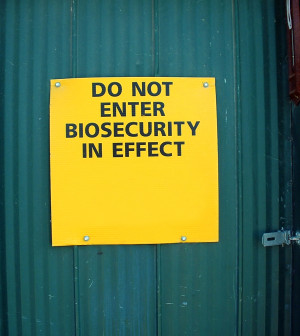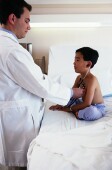- Could Your Grocery Store Meat Be Causing Recurring UTIs?
- Are You Making This Expensive Thermostat Error This Winter?
- Recognizing the Signs of Hypothyroidism
- 10 Strategies to Overcome Insomnia
- Could Artificial Sweeteners Be Aging the Brain Faster?
- Techniques for Soothing Your Nervous System
- Does the Water in Your House Smell Funny? Here’s Why
- Can a Daily Dose of Apple Cider Vinegar Actually Aid Weight Loss?
- 6 Health Beverages That Can Actually Spike Your Blood Sugar
- Treatment Options for Social Anxiety Disorder
Docs Offer Advice for Combating Respiratory Virus That’s Striking Kids


As Enterovirus D68 infections continue to spread across the United States, the American Lung Association offers tips on how to protect your child from infection and what to do if your child is struck by the virus.
The severe respiratory illness, which has been reported in 43 states and the District of Columbia, has landed some children in the hospital. With a total of 514 confirmed cases and four deaths that may or may not have been connected to the virus, experts are urging parents to take every precaution.
Health officials are also trying to determine if the virus is associated with cases of muscle weakness or paralysis that have struck 10 children in the Denver area. Similar cases have been reported in Massachusetts, Michigan and Missouri.
One thing for parents to know up front: Children with asthma are at increased risk for severe symptoms from Enterovirus D68 (EV-D68) and more likely to require medical attention, the lung association noted.
“Children with pre-existing lung conditions, such as asthma, appear to be at the greatest risk for severe symptoms from this virus. Most EV-D68 infected children recover without serious illness,” Dr. Albert Rizzo, senior medical advisor at the American Lung Association, said in a news release.
“However, it is important for parents to understand that children with this infection who have asthma or a history of wheezing episodes are at higher risk for increased symptoms of shortness of breath and wheezing and are more likely to need specific treatment to address this problem. This means quick contact with their pediatrician or family doctor and even a trip to the emergency room, or a call to 911 is appropriate if respiratory distress is present,” Rizzo advised.
Medical attention is required for a youngster with asthma if a typical cold is accompanied by wheezing or shortness of breath that leads to increased use of a rescue inhaler, drops in peak flows, or more nighttime difficulty with cough or wheezing, the lung association noted.
There is no vaccine or treatment for Enterovirus D68 infection. Some people who develop severe respiratory illness due to the virus may need to be hospitalized.
Infection with the virus can be prevented by:
- Washing hands often with soap and water, for 20 seconds each time.
- Not touching your eyes, nose and mouth with unwashed hands.
- Avoiding contact such as kissing, hugging or sharing eating utensils or cups and glasses with people who are sick.
- Disinfecting frequently touched surfaces such as toys and doorknobs, especially if someone is sick.
More information
The U.S. Centers for Disease Control and Prevention has more about enteroviruses.
Source: HealthDay
Copyright © 2026 HealthDay. All rights reserved.










